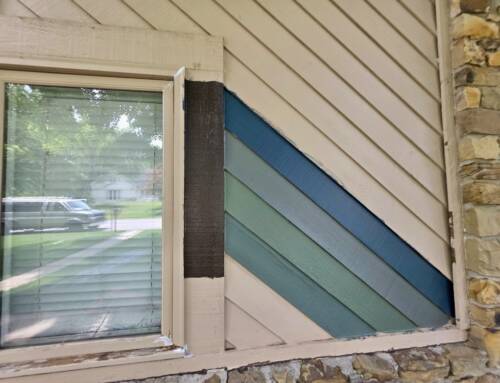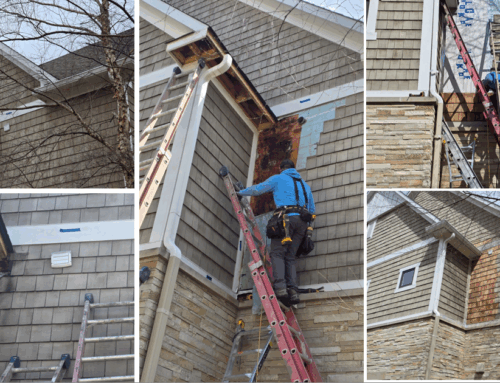Few home improvements are as noticeably refreshing as a new coat of paint. Painting can transform the look of your home inside and out in a few simple brush strokes.
With an exterior paint job, a professional is likely to be your best choice because the project likely will require scaling the roof and sides of your home. Working on ladders and handling painting chemicals and solvents can be dangerous, and some homes built before 1978 may be covered in lead-based paint.
When you’re ready to hire a professional, consider the following tips:
Get a painter’s estimate in writing
- Obtain an estimate based on the painter’s survey of your home. The contractor should visit your home and you should walk him or her through every aspect of the job.This is a good time to be specific about colors (you can obtain samples from many manufacturers’ paints at hardware and home improvement stores) and to ask for professional opinions.
Research the painter’s references
- Once you’ve found a few prospective painters on Kudzu.com, make sure each is licensed and insured. You also will want to check references. In your research, don’t trust photos. Most are taken from too far away to reveal brush strokes or squiggly lines. Ask for contacts on projects similar to yours. Look at projects that are at least three years old. You’ll want to find out whether the materials and colors the contractor used have held over time and weathered the elements gracefully.
Be specific about expectations in the painter’s contract
- Specify the work that will be done, the estimated completion time, and the total cost and payment schedule. Also, include the paint manufacturer’s name, color, grade, gloss, base, where the paints will be used, and how many coats will be applied. Also, be sure the contract specifies that a primer will be applied. The contract should state that the painter will clean up after the job is complete and remove excess paint from floors, ceilings, and windows. Beware of a contractor who uses phrases such as “surfaces prepared,” for example. The contract should instead spell out how the surfaces will be prepared — for example a power wash, bleach solution, disk sanding and caulk in any gaps.
Damage Control
- Painting can make a big mess, which is why the contractor should agree to return the area to its original state. The company should specify in its contract that it uses drop cloths and that it protects landscaping.
Paying your painting contractor
- Experts recommend paying for the job in thirds. Your contractor should receive a deposit of less than 10 percent when you first sign the contract, a third of the remainder in the middle of the project, and the remaining balance when the job is complete and all materials have been cleared. One last tip: if you live in a neighborhood with a homeowner’s association, be sure to check with them to ensure that they approve the color. You wouldn’t want to have to pay to have your home repainted.
Now you know a Guy!
Since you’re already here, if you are in the Indianapolis area, give Guy Painting a chance to earn your business. We run our business using the standards you see above. We provide references, including projects from your own neighborhood, detail all the work that will be done in our contract — including that all-important prep work and cleanup, and we won’t be finished until you are satisfied.
Get started on your painting project today. Call us or fill out our online quote request!





